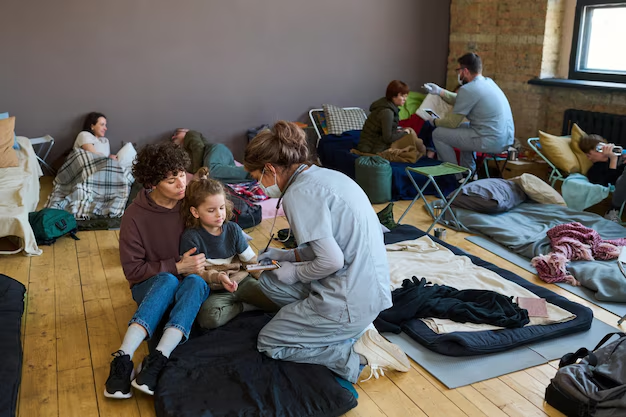Finding Hope and Shelter in Appleton: Your Guide to Local Homeless Resources
In the heart of Wisconsin, the city of Appleton stands as a beacon of community spirit and support, especially for those facing the daunting challenge of homelessness. Whether you're a local in need or someone seeking to assist others, understanding the landscape of resources available can make all the difference.
Homeless Shelters and Community Support
Appleton offers several homeless shelters that serve as safe havens for those in need. Organizations like COTS, Inc. and the Fox Valley Warming Shelter provide not only temporary housing but also essential services like meals, counseling, and pathways to permanent housing. They aim to offer residents a sense of dignity and a fresh start by focusing on long-term stability.
COTS, Inc.
COTS specializes in transitional shelter programs aimed at getting individuals and families back on their feet. They provide structured environments with the ultimate goal of self-sufficiency. Residents are empowered with life skills and employment assistance, making the transition smoother while fostering confidence and independence.
Fox Valley Warming Shelter
This shelter primarily offers immediate overnight shelter and meals for adults. It's operational throughout the cold months and serves as a critical emergency stopgap for those at risk, ensuring everyone has a safe place to sleep, regardless of the season.
Expanding The Horizon: Financial Assistance Programs
Beyond immediate shelter, Appleton supports its residents with various financial assistance programs aimed at paving a path to resilience and financial independence.
Government Aid: The Wisconsin Department of Health Services and local agencies provide access to essential programs like Supplemental Nutrition Assistance Program (SNAP) and Temporary Assistance for Needy Families (TANF), which play a crucial role in alleviating the immediate financial burdens for individuals and families experiencing hardship.
Debt Relief Options: For those battling escalating debts, debt consolidation services and credit counseling initiatives can alleviate pressure, allowing for manageable payment schemes and a clearer path to debt resolution. It's critical to research and select reputable counseling services to ensure beneficial outcomes.
Credit Card Solutions: Managing existing credit wisely or considering a secured credit card could help improve financial health. These cards often require a reduced or refundable deposit and can help establish or rebuild credit, serving as stepping stones to greater financial freedom.
Empowerment through Education
Education remains one of the most potent tools for overcoming financial challenges. Appleton provides access to various educational grants and scholarships, bridging the gap for those driven to upgrade their skills.
Fox Valley Technical College offers several programs aimed at adult learners, including scholarships and financial aid assistance. By investing in education, individuals gain the skills needed to secure sustainable employment, enhance job prospects, and further contribute to the community.
Education and training programs not only boost employability but also reinforce personal growth and societal reintegration for those transitioning from homelessness.
Key Takeaways and Resources
- Shelters in Appleton: COTS, Fox Valley Warming Shelter
- Government Aid Programs: SNAP, TANF
- Debt Relief: Credit Counseling, Debt Consolidation
- Credit Solutions: Secured Credit Cards
- Educational Opportunities: Fox Valley Technical College
Navigating through periods of housing insecurity can be challenging, but with a well-rounded understanding of available resources, the path to stability becomes a shared journey between community support and personal determination. Whether it's through finding shelter, financial aid, or educational advancement, Appleton stands ready to guide its residents toward a brighter future. 💡

